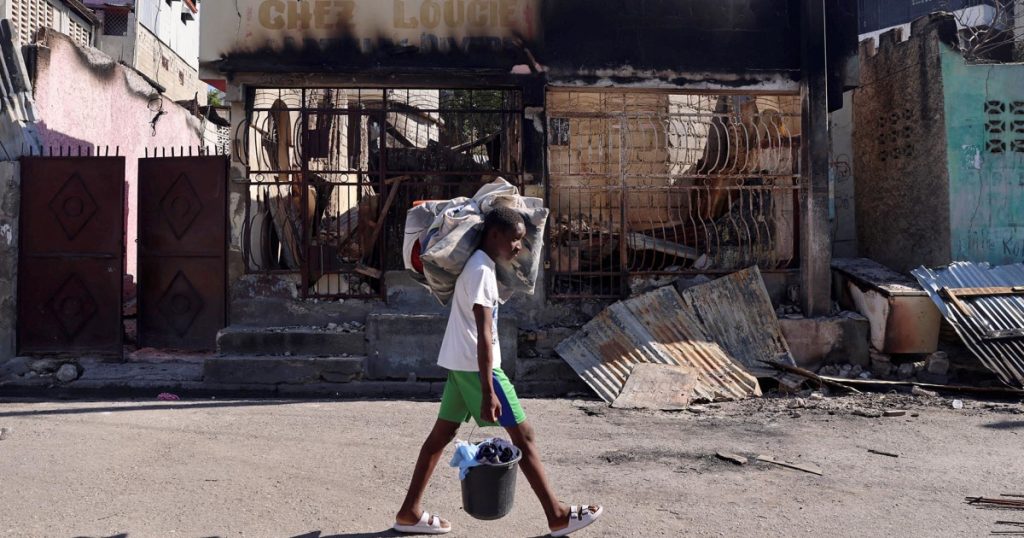The Trump administration has designated a coalition of Haitian gangs that have embroiled the Caribbean nation in mass violence as terrorist organizations, a White House official confirmed to NBC News.
The Viv Ansanm coalition and the Gran Grif gang will now be labeled a Foreign Terrorist Organizations and as Specifically Designated Global Terrorists by the State Department.
The designation was first reported by the Miami Herald.
The Treasury Department also applied the designation to the Gran Grif gang. In October, the gang took responsibility for a massacre of at least 115 people in Pont-Sonde, a rural town.
Earlier this year, Secretary of State Marco Rubio authorized a similar designation for several Mexican cartels and gangs, including MS-13 and Tren de Aragua, according to which, if an individual is found to be providing “material support” to them, they could face sanctions and penalties.
“Engaging in transactions with members of these groups entails risk in relation to counterterrorism sanctions authorities, not only for Haitians but also for U.S. lawful permanent residents and U.S. citizens,” Rubio said in a statement on Friday. “Individuals and entities providing material support or resources to Viv Ansanm or Gran Grif could face criminal charges and inadmissibility or removal from the United States.”
The terrorist designation for Tren de Aragua and MS-13 has been used as one determining factor in deporting several people in the U.S. to a Salvadorian prison. The move comes as thousands of Haitians living in the U.S. under protected status programs were told they must leave the country months before their status was set to expire.
According to a fact sheet by the State Department, Gran Grif is the largest gang in Haiti’s rural Artibonite region. The department said the gang is responsible for 80% of the deaths in that area, including an attack earlier this year that killed a Kenyan military officer on a mission to provide security in Haiti.
Viv Ansanm is a coalition of gangs especially concentrated in Port-au-Prince, where most of the violence has centralized since 2021. According to the State Department, this group coordinated the attacks that have destabilized critical infrastructure, including prisons, government buildings and the main airport.
Rubio told the Herald that the designation was part of America’s responsibility to address the widespread violence and political upheaval in the country. The Department of Homeland Security did not respond to a request for comment from NBC News.
In addition to potentially cracking down on anyone in the U.S. who sends cash to people in Haiti, Vanda Felbab-Brown, a senior fellow at the Brookings Institution who is monitoring the situation in the country, said the designation may have more of a social effect on Haitians living here.
More than 1 million people have been displaced by the conflict as the violence has spread to central Haiti. The instability throughout the country has forced health facilities to close and has caused widespread famine.
Meanwhile, the Dominican Republic and other countries have been deporting Haitian migrants back to their home country despite pleas from the United Nations to stand down over humanitarian concerns, according to Reuters.


